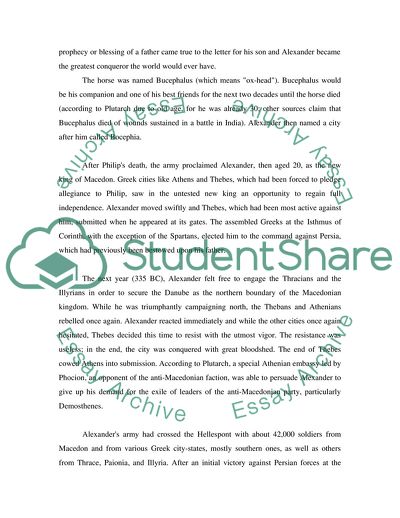Cite this document
(Alexander the Great Essay Example | Topics and Well Written Essays - 1750 words, n.d.)
Alexander the Great Essay Example | Topics and Well Written Essays - 1750 words. https://studentshare.org/history/1710602-twelve-greeks-and-romans-who-changed-the-world-by-carl-richard
Alexander the Great Essay Example | Topics and Well Written Essays - 1750 words. https://studentshare.org/history/1710602-twelve-greeks-and-romans-who-changed-the-world-by-carl-richard
(Alexander the Great Essay Example | Topics and Well Written Essays - 1750 Words)
Alexander the Great Essay Example | Topics and Well Written Essays - 1750 Words. https://studentshare.org/history/1710602-twelve-greeks-and-romans-who-changed-the-world-by-carl-richard.
Alexander the Great Essay Example | Topics and Well Written Essays - 1750 Words. https://studentshare.org/history/1710602-twelve-greeks-and-romans-who-changed-the-world-by-carl-richard.
“Alexander the Great Essay Example | Topics and Well Written Essays - 1750 Words”. https://studentshare.org/history/1710602-twelve-greeks-and-romans-who-changed-the-world-by-carl-richard.


